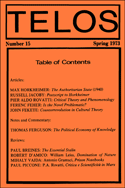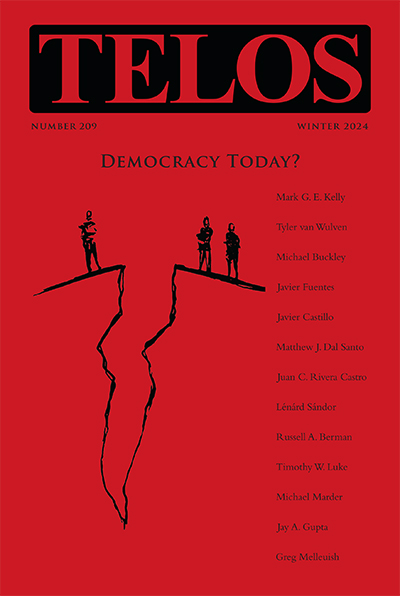Today, the anti-elitist political concept responds directly and effectively to social demands in Europe and the United States. And this anti-elitist or anti-system concept perfectly encompasses both the left and right, and, of course, the extremists. As different as they are, the new leaders are protesting and transgressive. Their demagoguery is marked by the language of transgression, provocation, and excess, based on the subversion of language or behavior codes: for them, this is a matter of drawing a clear distinction from the standard model policy. They can complain about being demonized by their opponents, while still trying to stay slightly demonized in order to maintain their attractiveness. This is the prerequisite to the seduction that they perform. This differentiates them from formatted and conformist leaders, who pursue respectability, which makes them somewhat watery.
|
A panel on Renzo De Felice’s The Jews in Fascist Italy: An Historical Appraisal was held at the Calandra Institute on January 28, 2016. The panel included Frank Adler, Telos Editorial Associate and editor of Telos 164 (Fall 2013): Italian Jews and Fascism. Copies of Telos 164 can be purchased in our online store. Panelists explored the genesis of De Felice’s book and its place in contemporary historiography. Commissioned by the Union of the Italian Jewish Communities and published in 1961, it was the first study of the anti-Jewish persecution in Italy to reach a general audience. It was also a young historian’s first book on the Fascist era. This glance into a chapter of national history, that Italy had been quick to bury, set De Felice on a path to become one of the leading and most controversial scholars of Fascism. How was his attempt to capture an unsettling past received at the time of the book’s publication? What place does this book have in the current scholarship when many of its conclusions have been overturned after five decades of research on Italian state-sponsored anti-Semitism? And to which degree have the studies of Fascism and of the persecution of the Jews shed light on one another? Telos readers in the New York City area may be interested in an upcoming event at the John D. Calandra Italian American Institute: On the occasion of the paperback reprint of Renzo De Felice’s The Jews in Fascist Italy, this panel will explore the genesis of the book and its place in contemporary historiography. Commissioned by the Union of the Italian Jewish Communities and published in 1961, it was the first study of the anti-Jewish persecution in Italy to reach a general audience. It was also a young historian’s first book on the Fascist era. This glance into a chapter of national history, that Italy had been quick to bury, set De Felice on a path to become one of the leading and most controversial scholars of Fascism. In this video from the 2014 Telos in Europe Conference, Benjamin Martin talks about his research on the idea of European culture, arguing that its emergence among intellectuals after World War I and its subsequent embrace by the Nazis and Italian Fascists serves as a cautionary historical lesson. In this short video, filmed at the recent Telos Conference in L’Aquila, Editor Russell A. Berman talks about the central themes and concerns of Telos 168 (Fall 2014): The West: Its Past and Its Prospects. We have posted Russell’s full introduction here, and you can order your copy of the issue in our online store. |
||||
|
Telos Press Publishing · PO Box 811 · Candor, NY 13743 · Phone: 212-228-6479 Privacy Policy · Data Protection Copyright © 2025 Telos Press Publishing · All Rights Reserved |
||||
 In November 1939, gangs of German civilians and Nazi operatives stormed Jewish stores, synagogues, and homes, killing or arresting those who could not escape. The Nazi leadership had carefully planned the assault—Kristallnacht would become only one among many instances of unimaginable horror. In the coming years, the Nazis proceeded to murder thousands of disabled Germans; when Germany invaded Russia, groups of special units—known as Einsatzgruppen—followed closely behind the German army, liquidating Jews, Communists, and Roma.[1] By 1942, the Nazi death camps had initiated yet another gruesome and terrifying phase of the Reich’s program of anti-Semitism and racial purity.[2]
In November 1939, gangs of German civilians and Nazi operatives stormed Jewish stores, synagogues, and homes, killing or arresting those who could not escape. The Nazi leadership had carefully planned the assault—Kristallnacht would become only one among many instances of unimaginable horror. In the coming years, the Nazis proceeded to murder thousands of disabled Germans; when Germany invaded Russia, groups of special units—known as Einsatzgruppen—followed closely behind the German army, liquidating Jews, Communists, and Roma.[1] By 1942, the Nazi death camps had initiated yet another gruesome and terrifying phase of the Reich’s program of anti-Semitism and racial purity.[2] 

